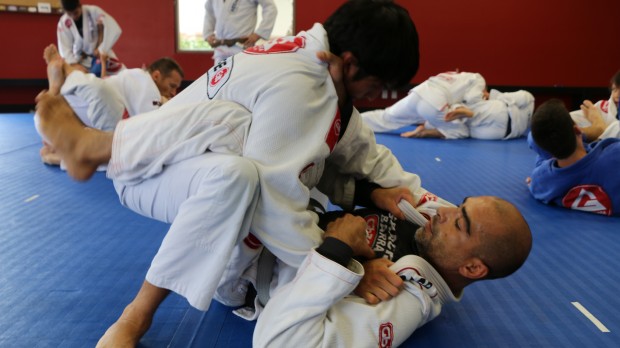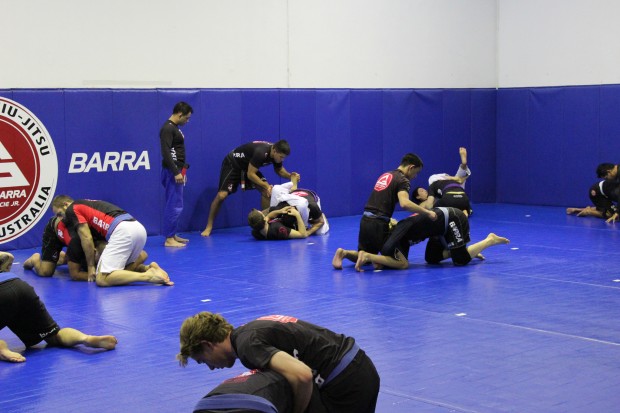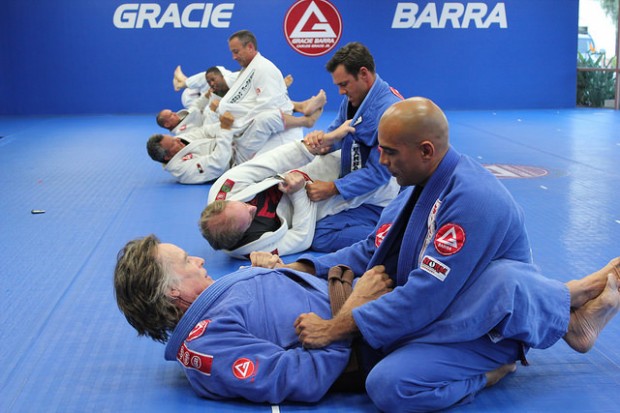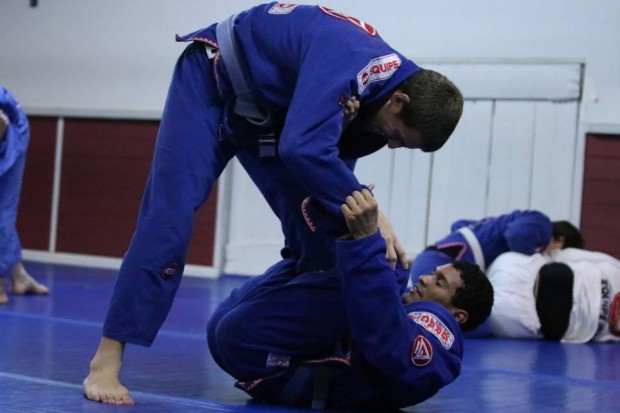Who Tapped Who in Training?
“Who Tapped Who” is both one of the most popular topics of conversation in the academy and at the same time something that can be harmful to the culture of an academy.
To deny that we are interested in seeing how our training partners in the academy match up when rolling is not to acknowledge that we want to see how competitors match up.
Read also: 4 Things To Avoid in BJJ
All combat sports have rankings.
- Is this fighter better than that fighter?
- Fans want to see when two top fighters are matched up, who will prevail?
- Within the academy, can the athletic bluebelt with the unstoppable guard pass successfully pass the impassable guard of the highly technical purple belt?
- If this is a natural thing in the academy, why can it be harmful?
Because it ignores something important about the nature of “training” as opposed to “competing” in the academy.
Most advanced belts know that training in the academy IS DIFFERENT than how one would approach a match in a competition. Professional mma camps strongly discourage idle chatter about who beat who in training.
Training in the academy is when you make your mistakes so that you don’t make them during the gold medal match. It is when you experiment with new positions to see how they might be integrated into your game.
Training is the time where you protect an injury by restricting yourself to certain positions.
Training is when you might “keep it playful” by allowing lesser experienced students work from some top or dominant positions to make the roll more fun and interesting for both.
Training is when you may decide to ask your partner to start in a dominant position to work on your escapes.
Training rolls do NOT accurately reflect “who might win” in a competition intensity, full rules match when both combatants bring their “A Game”.
For example: Have you ever observed an advanced student – with strong wrestling skills – deliberately decide that today they were going to work on their open guard?
Truth is, in a real match, the wrestler could quickly scramble to their feet and take the top position. But they are purposefully playing guard in order to develop that part of their game.
I cringe when I overhear some less-experienced students watching such a match express surprise that the wrestler is controlled on his back and getting passed! Clearly evidence that the student passing is more skilled and dominating the wrestler!
No! It is JUST TRAINING.
One story from my own training is a good example of this.
When I was a blue belt, I had a very powerful and highly skilled training partner, “the Beast”, who would several times a week “big brother” me on the mat. He had a dominant game and our matches consisted of me defending the inevitable for as long as I could before succumbing to his signature armlock.
One day he decided that instead of tapping with an armbar for the 1000th time, that he would try to experiment with some knee bars. As he was not yet proficient with the knee bar attacks, I was able to stop them and counter with ankle lock to which he tapped a few times. Several of the other students witnessed the ankle locks and later congratulated me on tapping “the Beast”.
The congrats were out of place, however, because both “the Beast” and I knew that at any time he could have turned up the intensity of the roll and tapped me for the 1001st time with his dangerous armlock.
I was only in any position to ankle lock him because he ALLOWED the roll to get to that position, so he could work on something less dominant in his game.
You have to be willing to experiment and try things in training. If other students are gossiping about who tapped who (without understanding the training situation that day) it can create a culture where people are afraid to try things and fail.
When you are so afraid of losing in training because other students will talk about it, it has a harmful effect on the development of your jiu-jitsu.
I often repeat to the newer students “It is just training!”
Read also: 3 Ways Training Bjj Makes You Happier
Credits: Mark Mullen
Gracie Barra Black belt based in Taipei, Taiwan
Twitter: @MarkMullenBJJ




